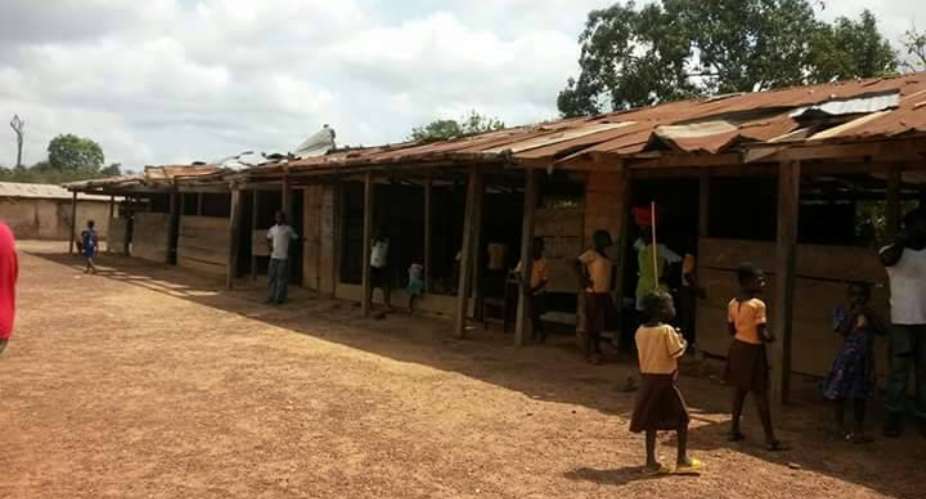A solid maintenance culture is a sure way to increase the life and performance of equipment or facilities. However, the continuing degradation and disintegration of Ghana's private and public infrastructure gives the impression that the phrase maintenance is separate from the Ghanaian vernacular. The absence of the term among Ghanaians has resulted in the degradation of various infrastructures. The most notable facility suffering this fate is the Komfo Anokye Teaching Hospital in Kumasi, the central referral health facility in the Ashanti region, which serves the health needs of patients in 12 of the country's 16 regions, prompting Otumfour Osei Tutu Ababio, the King of the Ashantis, to launch an appeal to Ghanaians to assist in saving this national asset. This occurrence makes me wonder why Ghanaians do not have a maintenance culture or how they react when they see national assets deteriorate.
A community with a strong maintenance culture always enjoys well-maintained equipment or facilities that perform properly and fulfill their purpose. In contrast, facilities or structures in disrepair or unclean conditions represent possible threats to the public. Despite this, Ghanaians do not care for their private and public infrastructure, allowing it to deteriorate and be rebuilt at a more significant cost. Ghanaians understand that the most effective way to extend the useful life of their assets and facilities is to cultivate a strong maintenance culture. Nonetheless, whether through immorality or disloyal conduct, they have left many schools looking like hencoops or cow ranches, with government institutions like the military and police barracks crying hysterically for repairs. Aside from that, a lack of maintenance has reduced Ghanaian roads to dead traps, potholes, and interlocking spurs, resulting in innumerable sad incidents and the deaths of people transported in ambulances to hospitals for emergency care.
We blame governments for the country's lack of growth because they refuse to provide the infrastructure for economic and social progress. However, we must recognize that our failure to properly maintain infrastructure, buildings, and equipment acquired with government funds to address a need is the country's curse. As Ghanaians, we abuse government buildings and projects, reducing their anticipated lifetime. When confronted with abusing government property, they often respond, "It belongs to the government, not my father." This mentality leads to the gradual degradation of roads, buildings, and utilities, ending in costly repairs and replacements. If we properly maintain our facilities, the money spent on maintenance may be utilized to develop new ones.
Regarding the issues above, I want Ghanaians to recognize that maintenance offers several advantages. Saving money is one of the most important advantages of maintaining facilities or assets. Recurring defects caused by a failure to maintain facilities deplete an organization's, governments’, or individual's money. Ghanaians must learn to engage in proactive maintenance rather than waiting for facilities and equipment to fail before investing large sums of money to repair them.
It is also important to note that appropriate maintenance extends the life of assets. Maintaining excellent facilities and equipment allows them to run for more prolonged periods, resulting in cost savings. Additionally, regular facility maintenance improves efficiency. Waiting for a facility or equipment to malfunction or break down to do maintenance puts the company in danger of losing output and hurting its image.
Another reason Ghanaians should emphasize facility maintenance is because it lowers maintenance expenditures. Cultivating a maintenance culture saves businesses and people money on replacements, repairs, and upkeep. It also makes the property more durable and dependable and performs better. Ghanaians must create a maintenance culture and refrain from investing in new properties without taking care of old ones. To accomplish this, the Ministry of Information and National Orientation, as well as all stakeholders, should encourage citizens to improve the maintenance of their private and government properties through extensive public education to instill a maintenance culture and preservation in the public, thereby extending the useful lifespan of private and public facilities.
Finally, Ghanaians should recognize the need to incorporate property maintenance into their everyday routines and change their attitude toward government buildings. Diligent maintenance may help firms and individuals avoid unforeseen expenses. Inspecting, cleaning, and caring for buildings or assets may help them last longer and save money by avoiding expensive repairs and replacements. As a result, I encourage Ghanaians to make property maintenance a part of their daily lives because "if you refuse to plan for maintenance, maintenance will plan for you."





 We saved $57.9million from procurement of new verification devices, registration...
We saved $57.9million from procurement of new verification devices, registration...
 Ejisu by-election: Aduomi is a betrayer – Ahiagbah
Ejisu by-election: Aduomi is a betrayer – Ahiagbah
 Dumsor: I’ll be in police custody if I speak, I vex — DKB
Dumsor: I’ll be in police custody if I speak, I vex — DKB
 We'll give daily evidence of Akufo-Addo's supervised thievery from our next gene...
We'll give daily evidence of Akufo-Addo's supervised thievery from our next gene...
 Asiedu Nketia crying because they've shared the positions and left him and his p...
Asiedu Nketia crying because they've shared the positions and left him and his p...
 Mahama's agenda in his next 4-year term will be 'loot and share' — Koku Anyidoho
Mahama's agenda in his next 4-year term will be 'loot and share' — Koku Anyidoho
 If you're president and you can't take care of your wife then you're not worth y...
If you're president and you can't take care of your wife then you're not worth y...
 Foreign Ministry caution Ghanaians against traveling to Northern Mali
Foreign Ministry caution Ghanaians against traveling to Northern Mali
 GHS warns public against misuse of naphthalene balls, it causes newborn jaundice
GHS warns public against misuse of naphthalene balls, it causes newborn jaundice
 Our education style contributes to unemployment - High Skies College President
Our education style contributes to unemployment - High Skies College President
